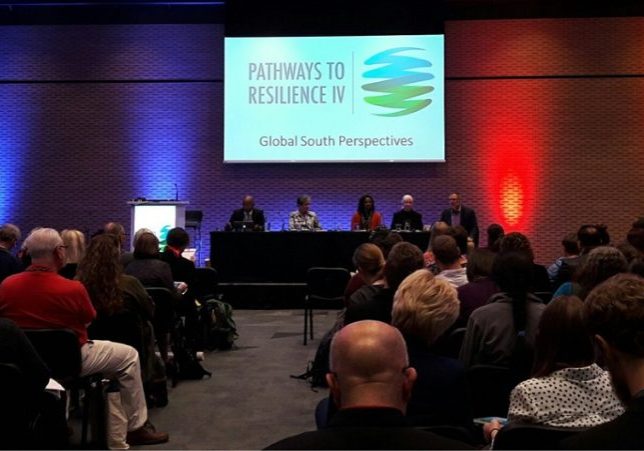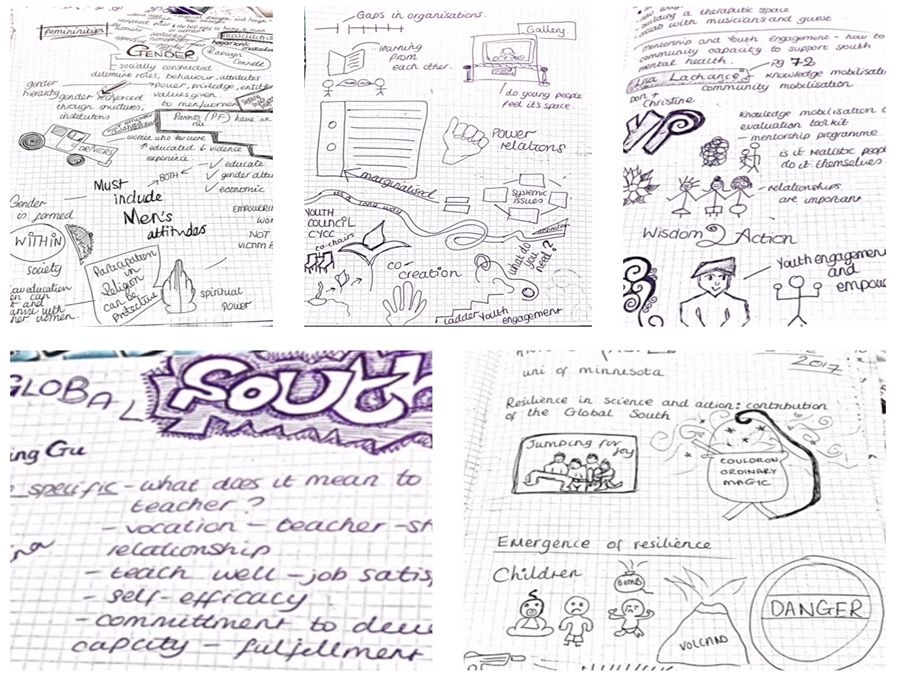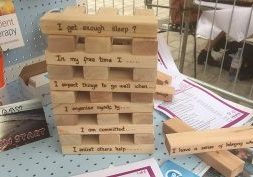Boingboing blogs from… South Africa
Pathways to Resilience IV: Global South Perspectives, 14-16 June 2017
By Naz Biggs, Boingboinger and (nearly) a PhD Student
When Angie asked me if I wanted to attend and speak at this year’s Pathways to Resilience Conference in Cape Town, South Africa, I was really excited at the awesome opportunity. I had never attended an international academic conference before, and considering that it would be something I would be doing more regularly during my PhD, I jumped at the chance.
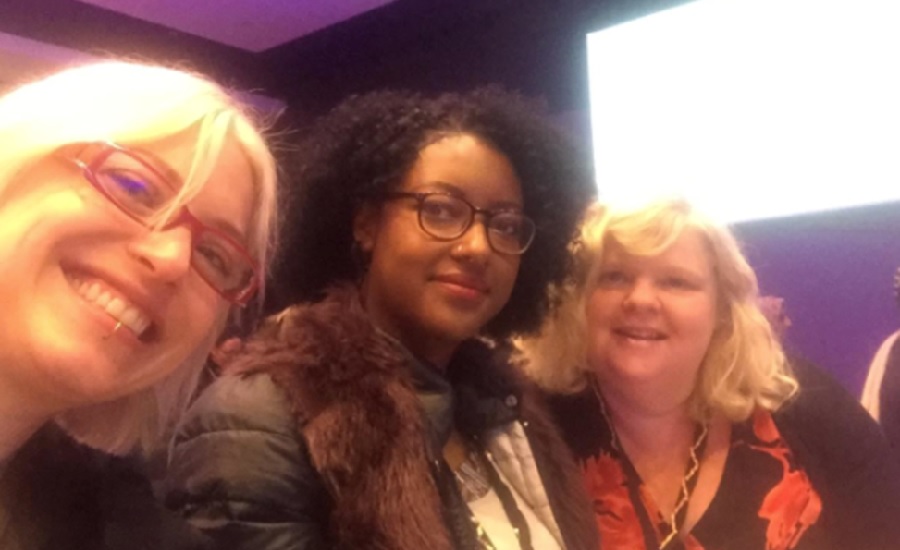 Boingboingers: (from left to right) Mirika, Naz and Angie
Boingboingers: (from left to right) Mirika, Naz and Angie
The conference was a buzz of activity. On the first day we were welcomed by Linda Theron and Michael Ungar, who shed light on the importance of resilience research including Global South perspectives. One of the main recurring debates throughout the whole conference was about the relationship between the ‘Global North’ and ‘Global South’. It was highlighted that in academia and research, Global South perspectives were often ignored or not properly valued. Michael Ungar highlighted that the conference wanted to challenge that notion. The term Global South refers to countries that were previously classed as “Third World” (i.e., countries in Africa, Asia, Latin America). By having the conference in South Africa, it was already opening up accessibility for other countries within the Global South to attend. This showed as 54 countries were represented at the conference.
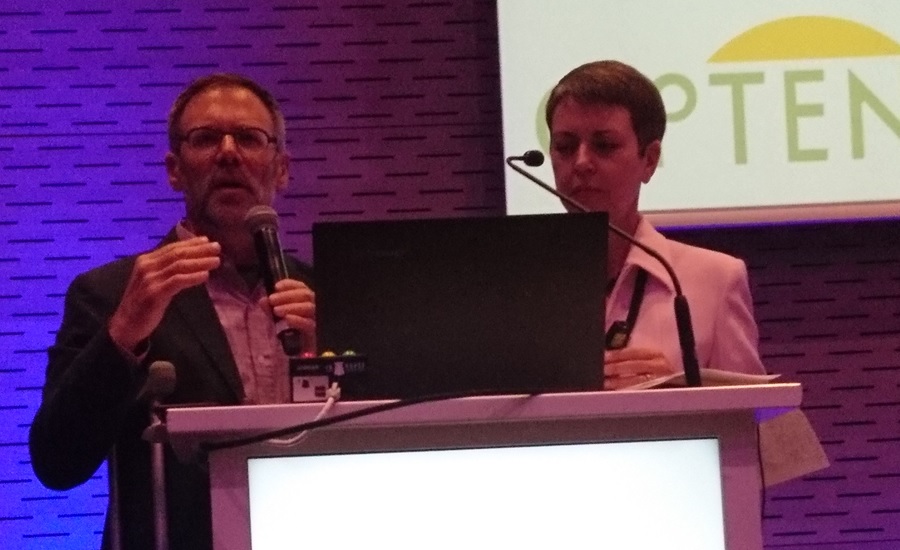 Michael Ungar and Linda Theron welcoming attendees to the Pathways to Resilience IV Conference
Michael Ungar and Linda Theron welcoming attendees to the Pathways to Resilience IV Conference
The first keynote was a powerful opening by Professor Relebohile Moletsane, who talked about building resilience among young people in the context of structural violence. Her talk addressed the high statistics of violence (including sexual violence) against women in South Africa. But, also championed that ‘these women had stories to tell’. Using storytelling to captivate the audience, she told a story of “the little rascal” that lives within women who have experienced sexual violence. For me the story depicted a hidden “little rascal” that represented an inner strength that at times may not be understood or recognised. She reminded us that in society we have a tendency to victim blame. We ask them to ‘forget their suffering’. But, to really challenge sexual violence and create resilient young people who have experienced these adversities, we need to remove the burden of responsibility from the individual. We need to consider how we build programmes that can have effective social change with communities. Relebohile argued that to work with women in violence we need to look through a feminist perspective, take their lived experience seriously and infuse a gender analysis in the work we do. I do think that due to living in such patriarchal societies, we still need to make sure that men are included in other projects. They are needed to drive change in this area too.
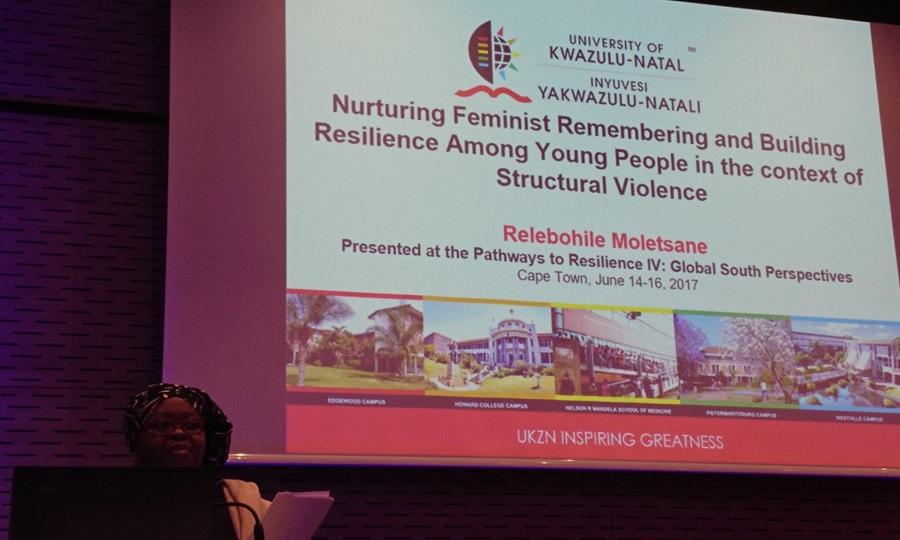
Relebohile Moletsane boldly addressed some of other the barriers that prevent change in this area. One being parental roles and beliefs about sexual violence and education. She said that the South African Minister of Health asked parents ‘who of you consulted your parents before your first sexual encounter?’. This question was in response to unhappy parents who didn’t want their children to be taught about sex in schools, or for schools to distribute condoms without parental consent. Throwing a question like this back to those parents, highlighted the reality of the situation. Usually, children do not consult their parents beforehand. Hopefully, this could get some parents engaging in a more open discussion about sexual education in schools. I agree that a change in attiudes is needed. However, this is not something that is limited to a South African context. Programmes worldwide need to commit to changing beliefs and educating children, young people and adults.
The plenary hot topic debate: ‘Is Resilience Futile? Adaptation in Contexts of Structural and Social Disadvantage’ (with panelists: Amarnath Amarasingam, Sarah Thomas de Benitez, Lane Benjamin, Sandy Lazarus) shed light on some of the challenges the Global South faces. Sandy Lazerus, reminded us that when we look at the research process from either the Global North or Global South we need to be committed to a de-colonial approach that promotes wellbeing for all. She said that often in the Global North there is a tendency to reframe what others are saying. However, this ‘reframing’ is grounded in our own our schemas and our socialisations. I found this a very important point to be raised. We need to constantly challenge colonial histories and the impact of them, from both Global North and Global South perspectives. All speakers of the debate agreed that ‘no, resilience is not futile’, however it wasn’t the complete answer either. I also agree with this. However, I think that if we want to really have an impact there needs to be more of a focus on activism. Additionally, allowing more youth led projects to come into play.
I was happy that day two of the conference had a more specific focus on youth and resilience. The symposium ‘Hubs, Tools & Community – How to increase community capacity to support youth mental health‘, highlighted to importance of mobilising young people to impact mental health and resilience. Don Mahleka’s presentation on youth engagement and empowerment really hit home for me. I have been working alongside youth projects since I was 14 years old and was really happy that this topic was discussed at the conference. However, I would have liked to see more young people attend and present at the conference to really hear their voices directly.
On the final day of the conference, Ann Masten’s key note presentation argued that there may never be one agreed definition of resilience. Although, a lot of research into resilience would be in agreement that resilience research is moving away from individual characteristics. The definition of resilience (or what constitutes as key aspects to building resilience) are not agreed across the field. This could be because resilience is an interdisciplinary and multi-disciplinary topic. I think that recognising and championing the multi-inter-disciplinarity of resilience is exactly what is needed to encourage the diversifying of the field. Through this we can continue to illuminate the complexities that exist within resilience research. I believe this very strongly, which is why my PhD topic will be researching resilience and social enterprise, two topics that already span an array of academic fields.
Michael Ungar and Linda Theron both expressed their arguments at how they think the field is diversifying throughout the conference. Michael Ungar said to continue this and be able gain valuable and applicable learning, “we need more and more insight into the complexity of the research”. Within our research we need to draw out what is actually contextual and/or localised and what could be general protective factors. But, ultimately, Linda Theron said that we need to stop trying to homogenise the story of resilience and recognise the differences.
As a newcomer to the research field of resilience, the conference really got me to question certain aspects of what resilience even means. Understanding that everything we research and do could benefit more from being viewed through us challenging colonial histories and gender norms, was really profound for me. The conference showed me that research and perspectives from the Global South are very important and can have amazing impact to the field. I know that as my academic journey continues I will be able to gain more insight into the field and respond with more of a critical eye to some of the concepts expressed.
Interesting conference quotes:
“If you want to go fast, go alone. If you want to go far, go together” – African Proverb
“It is morally perverse to ask children to have resilience in the face of extreme adversity: violence, financial, social, psychological)” – Sarah Thomas de Benitez
“We need to recognise the power of the social” – Sandy Lazarus
“In a lot of communities the term resilience isn’t used but ‘healing’ first you need to connect to self- and then each other” – Lane Benjamin
“Singing brings new ways of being with people” – Marion Brown
“The field has to become more politicised and challenge these structural problems” – Relebohile Moletsane
“There are cultural expectations of resilience” – Quing Gu
“Context is a complex beast” – Silvia H.Koller
“Parent figures matter” – Linda Theron
“I am because we are. I am we.” – Masego Katisi
